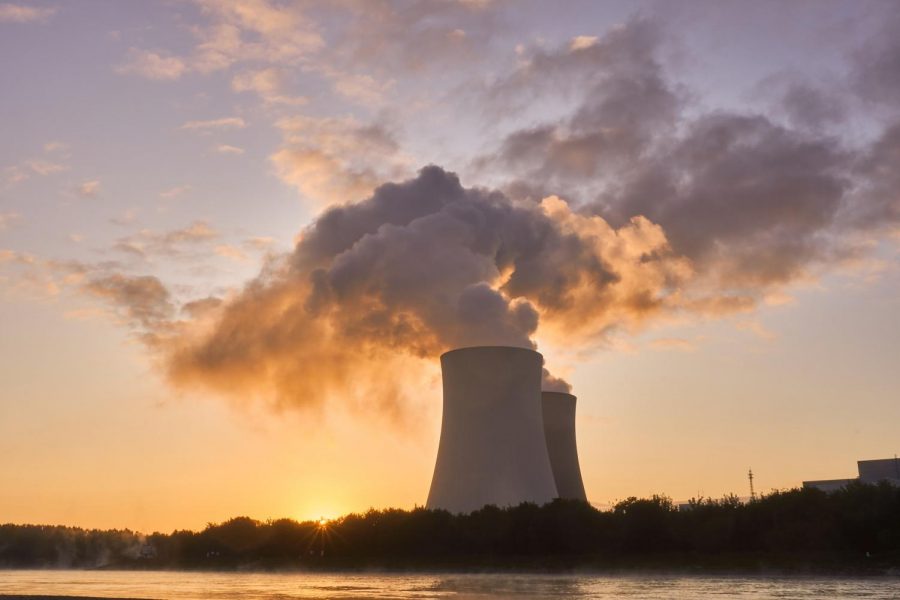Nuclear catastrophe is unacceptable. The U.S. set a global precedent of carelessness surrounding environmental degradation, creating a nuclear nightmare. Though highly contested, Japan plans to dump over a million tons of radioactive waste into the ocean. Robert Richmond, a biologist at the University of Hawaii, shared with NPR that scientists agree the resulting exposure could potentially damage the DNA of marine life.
“We are unanimous in our view that this has not been proven to be safe,” Richmond said. While the plan is approved by the UN’s nuclear watchdog, activists and scientists don’t believe there is enough evidence that the waste isn’t harmful. These regulations are just for show if scientists “unanimously” agree they aren’t well-founded.
The pro-nuclear argument for nearly unlimited energy neglects the present reality that humanity must simply consume less of everything. HEAL Utah, Living Rivers and Uranium Watch stand together against water-hungry nuclear projects in Utah. If we want a lasting and safe energy revolution, we must not engage in nuclear projects, which inevitably degrade local life.
Energy Colonialism
Roger Renteria, a Chicano scholar pursuing his Ph.D. in sociology, offered insight into local environmental degradation. He detailed uranium extraction affecting Indigenous communities, specifically the Navajo Nation.
“[Extraction is] deeply tied into colonialism and the wastelanding of Indigenous spaces and Indigenous people,” Renteria said, describing the process as “energy colonialism.”
From nuclear testing in the Pacific to the targeted destruction of nuclear installations, those in authority prioritize power and also profit. Endless imperial expansion is a logic of conquest and colonization — a desire for endless consumption creates a psychological illness of retention.
Mega-exploiters weaponize these desires against people to blind them to long-term ecological destruction. Today, the uber-wealthy are killing off Indigenous and working-class people for the sake of conveniences made possible by nuclear energy. The most privileged are imposing these ethical responsibilities onto the most vulnerable.
Wastelanding
“We try to separate humanity from the environment, but we are the environment, as well,” Renteria said.
Radioactive waste is already being sent to Utah and the lack of effective regulations surrounding it is already affecting our Indigenous First People. If we wasteland Indigenous spaces, we wasteland Indigenous people. We must not accept this blatant disregard for our communities as the norm.
Utah considers nuclear power to be a potential solution to address climate change. First People downstream from us are the most likely to be impacted by nuclear power. We must not cave to new nuclear installations: nuclear energy is not “clean,” though many believe it to be.
Uranium ore is an essential product for nuclear reactors. Both mining and refining uranium are major environmental concerns because they produce radioactive waste. Uranium mill tailings and spent reactor fuel remain radioactive for thousands of years and become more radioactive as they decay. A reduction in carbon emissions is not always a reduction in environmental cost.
Utah doesn’t have any nuclear facilities that produce the waste it is tasked with maintaining. Even low-level waste requires large amounts of land that become entirely unusable for the foreseeable future. Importation of radioactive waste to Indigenous territories across the American West elevates this problem from environmental degradation to environmental racism.
Waste sites with unregulated disposal practices are often near Indigenous communities. Ongoing protests challenge this environmental racism contributing to the uptick of cancer cases in the Ute Nation near the White Mesa Mill. The nuclear industry targets communities that have no control over their landscape or can’t turn down the money offered for their land rights.
Renteria shared about a case in Monticello, UT where women experienced increased rates of breast cancer. Monticello families, including people of the Navajo Nation, were devastated by the nuclear industry because the men who worked in nearby uranium mines exposed their households to radiation. This tragedy urgently points to the fact that intimacy should never kill, but we have created a world where it can.
Environmental Racism Resistance
“Future generations will have to deal with the effects of radioactive waste,” Renteria said. He emphasized the cascade of harm that our settler nation has already inflicted on Indigenous people. He added when we layer on waste, we only offer “violence to the folks who feel it transgenerationally.” The U.S. government already refuses to take responsibility for Indigenous water rights: protecting commercial interests is of greater importance than clean water for the Navajo Nation, as demonstrated in a recent U.S. Supreme Court ruling.
Renteria said First People would benefit from a seat at the table, while acknowledging the present systems of power are not adequately fit to incorporate their voices. “You get damned in terms of limited access to the table, and then when you get access, you get damned by those dismissing [Indigenous] information and knowledge,” Renteria said. Settler culture otherizes Indigenous ways of knowing. The inability of capitalism to mesh with sustainable existence points to our society’s active refusal to prioritize human well-being.
Collectively
We as a collective must consume less energy, clothing and water. But the most privileged both consume and waste the most. The wealthiest consume up to a million times more energy than the less privileged. It is for this reason that we must oppose projects that further enrich the wealthy. Stand with your fellow humans in efforts that urge for a more equitable distribution of wealth, like workers’ unions.
Renteria noted that Indigenous people face a “lack of political power because the political system doesn’t truly value them.” He said that we face environmental destruction because of “human activity within a specific system,” featuring cogs of capitalism, energy colonialism and wastelanding.
The plastics industry promotes recycling to shift the blame for ecological impact onto consumers and keep plastic in production. The petroleum industry invented the concept of “carbon footprint” to shift responsibility for pollution onto the consumer. Our response to corporate deflection must be to demand accountability for the harm being imposed on our planet and our bodies.
For a better and more sustainable way of life, we must first invest in a lifestyle change. The consumerist tendency to buy first and repent for ecological destruction later must go. We are not in a confession booth. The impact of our energy choices can’t be wished away once we realize capitalistic endeavors have been prioritized over human well-being. Any nuclear waste is too much nuclear waste.
The choice to change the way we see energy must take place before the point of environmental collapse. We must not seek to sustain the unsustainable.




Whitney Osborn • Jul 27, 2023 at 11:23 pm
What alternative solution do you propose in place of nuclear energy? If nuclear energy is not considered the answer, what do you believe is a more suitable approach to address our energy needs and environmental concerns?
NingLi Loken • Aug 1, 2023 at 10:38 am
Alternatives have existed for decades but are not prioritized because they are not lucrative enough. Instead of trying to create an unlimited energy source, we must control the impact of mega-exploiters. A paradigm shift is needed. Water is our most valuable resource, and agriculture is our most valuable industry. But we do not revere them accordingly. We do not eat batteries.
Noel Wauchope • Jul 24, 2023 at 1:08 am
This is a heartbreak. In Australia, there is now a struggle, to get it into our constitution that indigenous peopled must have a seat at the table in government decision-making. So must they have in Utah, and in every country in the world
NingLi Loken • Jul 26, 2023 at 10:28 am
I support the fight to establish an Indigenous decision-making body. First Nations need a voice with real impact in the Australian parliament as a democratic right. And I believe Indigenous knowledge and stewardship must be prioritized in global climate activism.